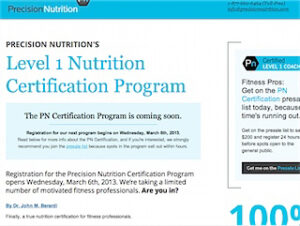Long-term readers of this site may recall the switch to Biphasic Sleep, which was not only extremely successful; it’s a highly recommended routine. Details here.
Whilst I maintained the somewhat uncommon sleep routine, I completely overlooked the process of switching to it in the first place. It was my initial 30 Day Challenge.
In fact, it wasn’t until I saw this talk (the video below) by Google’s Matt Cutts that I really thought about the power of these challenges to bring about lasting lifestyle changes. Almost immediately I began analysing various aspects of my life to find things that I’d like to change.
This is the first of those.
Why would you want to do this?
Firstly, a bit of background. For as long as I can remember, I’ve been a night person. I’ve always been far more productive at midnight than at 10 in the morning.
Consequently, 5 years ago when I made the switch to a Biphasic Sleeping routine, I decided to take my nap in the early evening, and my ‘core sleep‘ a number of hours later – in the early morning.
This worked extremely well, and I followed the same routine – unchanged – for almost 5 years. In fact, the only change during that time was the frequency of adherence.
When I first made the transition, I would have a night of monophasic sleep every month or so; depending on my schedule. Sometimes a biphasic routine just isn’t possible, or even desirable (for example, if you’re dining with friends during your usual nap time).
This occasional night of monophasic sleep gradually became a couple of nights, then a few; and eventually moved to a week or more. Particularly when travelling, when it was only possible to see/do things at certain times.
For this experiment, I decided to push the monophasic sleep period to an entire month. If successful, I’d return to a biphasic schedule at a slightly earlier time than before. Perhaps something like 4:30pm – 6:00pm for the nap, and 10:00pm – 4:00am for the core sleep.
As for the question of ‘why?‘, there are a couple of reasons. The first is simply that it provides a different set of things to photograph; think of sunrise, frost and early morning light. These are all things that I very rarely see on a late night schedule.
The second – and perhaps more important change – is an anticipated increase in productivity. This is based on anecdotal evidence from those who’ve made similar changes, notably Steve Pavlina [1] and Leo Babauta [2].
Whilst this increase is perhaps more hoped for than expected, the important point for me is that starting the day earlier isn’t likely to reduce productivity at all. Not in the long term, anyway.
How Have I Done This?
First, let me point out I elected to break my own cardinal rule for these challenges (and for many transitions, actually) : to only change one thing at a time. As this one involved a major lifestyle shift, I decided to adjust several things at once.
These were :
Increasing Sunlight in the Morning, Reducing it in the Afternoon

This idea stems directly from the Horizon documentary noted below [3], specifically the comments made by Dr Michael Hastings, Prof Debra Skene & Prof Till Roenneberg. The idea is that the amount of light your body receives at different times of day can impact the timing of your body clock.
To speed up your body clock (and spend more time awake in the mornings, less in the late evening), simply increase the amount of light you get in the mornings, and decrease the amount in the afternoon. In the mornings, go out in the sun, switch a bright light on, work outdoors if possible – whatever fits in to your current schedule. In the afternoon, stay in a slightly darkened room, wear sunglasses – again, whatever ties in to your routine.
The point is simply to increase morning light, and decrease afternoon light.
NB : to do the opposite (if you need to spend more time awake in the evenings), just reverse this. Less light in the morning, more in the afternoon and evening.
Taking Vitamin Supplements at Different Times
Although I hadn’t seen any information on this, I decided to switch my Vit D supplementation to the mornings for the same reasons as those above. To make things easier, I took my other vitamin supplements at the same time.
Previously they were all taken just after my last large meal, typically around midnight.
Allowing for 8 Hours’ Sleep
Although I rarely get anything approaching 8 hours of sleep with a biphasic routine, as I’d switched back to monophasic for this challenge I was typically sleeping around 7.5 hours a night. I allowed myself at least 8 hours per night – giving myself a small buffer zone of at least half an hour, just in case. This usually meant going to bed around 11:30, and waking up a little after 7.
Setting the Alarm as a Backup, Slightly Earlier Each Week

As a second line of defence – just in case the half hour buffer was not quite enough – I set an alarm to go off about 10 mins afterward. This time gradually came down week per week : just after 8 (the alarm isn’t all that accurate, it’s within about 10 mins), just before 8, about quarter to, about 7:30. I moved my bedtimes forward slightly to line up with these changes.
NB : this half hour buffer proved to be useful, at least at the beginning. Gradually my sleep time came down (by a minute or two each day), and now I regularly wake before the alarm goes off.
Improving Sleep Hygiene
When I initially changed over to a biphasic routine, I didn’t pay a great deal of attention to sleep hygiene (removing distractions, light sources etc). This time around I eliminated objects, light sources, sound and activities – as much as possible – from the area in which I sleep.
It’s now quite a dark, simple room; and falling asleep within minutes is almost inevitable.
Watching Podcasts, Movies etc Earlier in the Day
This lines up with the sleep hygiene improvements. Wherever possible, I now watch podcasts, movies etc slightly earlier in the day. Preferably not whilst sitting in bed, using a laptop (which was the norm previously).
Greatly Reducing Coffee Consumption

Although I wasn’t entirely sure that this was related to being a morning/evening person, I felt that this would be a good opportunity to make the transition. After all, it does have an impact on how alert you feel at various times (up for a few hours, followed by a slight – or severe, if you drink a lot in a short period – crash).
How much? Over time, I gradually reduced it from 8-10 cups per day to 1 cup per day. I’ve been on that quantity for more than a year now.
For this experiment (and it’s a permanent change) I cut this back to 1 cup per week; replacing the other cups with green tea. Accordingly, I never missed the ‘hot drink on a cold day‘ feeling. And the once per week thing ensured that occasionally when I found myself in a cafe or with friends who always drank coffee, I could still enjoy one.
All-in-all, it was much easier than I expected it to be. Nice and painless.
Eating Large Meals Earlier
As I mentioned above, prior to this change I usually ate a large meal a couple of hours before sleeping, which usually equated to somewhere around midnight. One of the things I noticed immediately was that by starting the day earlier, I was hungry a lot earlier. I switched to having a large breakfast almost immediately.
And yes, that replaced the meal at midnight. I eat a lot, but not quite that much.
Changing Workout Times
As with the ‘timing of large meals‘ change above, this was one that just felt right, and began a couple of days into the experiment.
I still have the ‘light session in the morning, heavy session in the evening‘ routine, I’ve just brought both workouts forward a bit. A few hours.
Benefits
This change has brought with it many benefits, a number of which are continuing to grow. Although I haven’t yet identified the reasons for all of them, they are :
- New things to see : a lot happens in the morning which I rarely see (and now love to photograph). Sunrise, frost, garbage trucks and much, much more. It feels very much like travelling to a new location and experiencing everything for the first time.
- Eating breakfast : I eat breakfast regularly, which is a big change in itself (previously I often didn’t eat until the afternoon). Not quite sure why, but it feels great.
- Early supplementation : I take my vitamin supplements during breakfast. I’m not yet sure whether it’s better to have the nutritional benefits during the day or during the night (ready for the following day), but I’m curious to see how it feels after a few more months.
- Greater water consumption : I drink more water, possibly as a result of cutting back on coffee.
- Productivity improvement : this is the one that has me most puzzled, although I’ll certainly take it. My productivity has improved. I seem to get more done in my first few waking hours than I did previously.
Unexpected, But Interesting
This change also brought with it a benefit which was not at all expected. My pet dogs began getting up earlier, in line with my new wake times. As nice as this is (I can now throw a ball around at the beginning of my day), I’m more intrigued by the greater potential of a change like this. Do other people (making the switch to a morning routine) find that their pets – or even their children – begin waking up earlier in the day?
Tips For Making This Transition (And Things I’d Do Differently)

After seeing the benefits, the main thing I’d change – if starting again – is cleaning up my diet first. I started this experiment having already been following a reasonably clean diet for some time (my own version of ‘modified Paleo‘), and I suspect that helped quite a bit. If you know that your own diet is poor, try to minimise the harmful aspects before beginning a challenge such as this. It should make things a lot easier.
I expected the ‘cutting back on coffee‘ part of this to be a lot more difficult than it was; it was actually surprisingly easy. Part of this was may have been the fact that I already drank a great deal of green tea, and I simply increased this slightly to compensate.
Even if green tea isn’t your thing, it’s probably a good idea to have something else ready to take up the slack once you do cut back on the coffee. Water, herbal teas, hot chocolate – whatever you’re in to.
Thirdly, if starting again, I’d improve sleep hygiene (as much as possible) first. Remove distractions, reduce the amount of light and so on. If you can fall asleep within minutes, great.
Summary
I’ve really enjoyed this change, and I’d strongly recommend it to anyone. Not only do I have a different set of things to watch & experience, it feels much more reasonable to carry out morning routines in the early morning.
It’s definitely a keeper.
What’s next? Although I reverted to a monophasic sleep schedule for this experiment, I’m keen to return to a biphasic approach. I’ll integrate the changes in an earlier timeslot, keeping the same routine overall.
Perfect.
References
I read, watched & listened to a lot of material for this challenge, notably the following :
1. How to Become an Early Riser
Steve Pavlina
2. 10 Benefits of Rising Early, and How to Do It
Leo Babauta
NB : both Steve and Leo have a number of semi-related pieces on their respective sites, all of which are great reads.
3. The Secret Life of Your Bodyclock
BBC Horizon
Originally aired 24 Feb, 2009
Fantastic documentary. Well worth tracking down.











0 Comments
Trackbacks/Pingbacks